
Branching Path: Josh Torres’s Top 10+1 Games of 2020
Well, the start of the new decade wasn’t ideal. It seemed promising at first to me; I was able to travel out to Chicago back in January to attend a NieR concert with some friends. That was a lovely time, though it felt like a lifetime ago at this point.
As you can imagine with the ongoing global pandemic, I didn’t travel at all after that trip. Events were cancelled left and right, rightfully so. A lot of my day-to-day life changed to adapt to the situation. Hopefully, lessons were learned as we enter another new year. Let’s proceed carefully and look out for one another.
Somehow, the video game industry persevered throughout the infamous year of 2020. There were a handful of strong releases and the new console generation is now well underway. With most of the year spent indoors at home, it felt like I played more games this year than I usually did in prior ones. I don’t know if that’s actually true or not.
The top three games I wished I got around to before 2020 ended were Nioh 2, Star Renegades, and Troubleshooter: Abandoned Children. I simply didn’t either due to waiting for a release on another platform or simply didn’t have the time. I’d like to get around to them next year, but 2021 is looking very busy.
To whoever is reading this, I wish you a safe and happy new year. Thank you for supporting me and the site. I wish you well.
These are my top 11 games of 2020, because it just felt wrong not mentioning Sakuna: Of Rice and Ruin.
11) Sakuna: Of Rice and Ruin
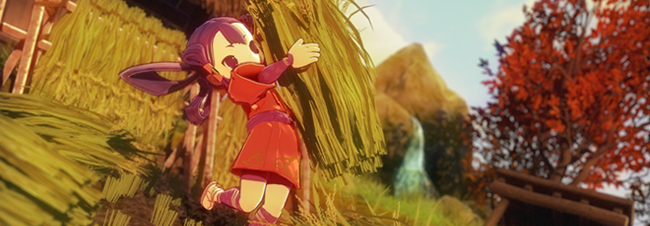
This charming RPG from Edelweiss has turned out to be one of the biggest success stories secretly this year and that warms my heart. Part action RPG and part rice farming simulator, Sakuna: Of Rice and Ruin is one of the strongest titles from a Japanese indie developer this year. I think if Edelweiss decides to do a follow-up, it has the potential to become something special. I don’t think it’s a complete home-run through and through, but I greatly enjoyed my time with Sakuna.
10) Mobile Suit Gundam: Extreme Vs. Maxi Boost ON
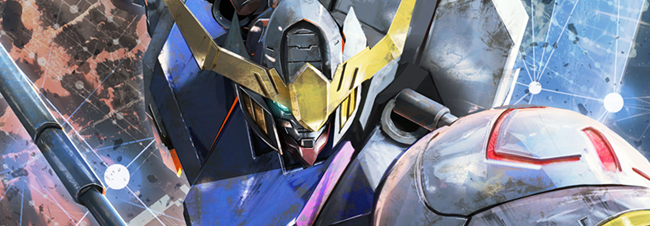
I have been waiting for this console port for many years. There’s a long, somewhat convoluted history behind this title’s journey to the PS4. I’m glad I finally got to play this game after seeing footage of matches in Japanese arcades for quite some time. It’s a relief to see that Bandai Namco has been treating this slick, responsive 2-vs-2 arena fighter right when it comes to post-launch support as well. Previous entries have been nickel and dimed severely with powerful DLC characters, while Maxi Boost ON has had no post-launch DLC that has crippled its fine-tuned balance. Plus, additional updates added a wireless connection indicator and a proper spectator mode have made this the most enjoyable entry yet for this series. There’s a massive roster of 180+ characters to choose from the get-go and more people should honestly give it a shot.
9) Ori and the Will of the Wisps
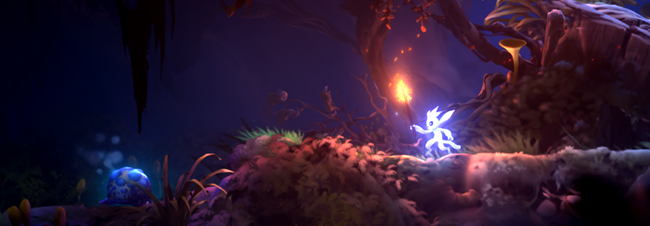
Ranking easily as one of the most gorgeous games of 2020, the sequel to Ori and the Blind Forest was an unexpected hit for me. I wasn’t a big fan of the previous entry, yet I still picked up Will of the Wisps around its launch out of sheer curiosity and came away amazed. Will of the Wisps is a magnificent step forward from Blind Forest in every way imaginable. The overhauled combat system is now fleshed out with a nice sense of character progression that is almost akin to a RPG. Several abilities are also integral to navigating the environment, which help keep navigation fresh and varied. Its story beats still hit hard like the first game and the extended development time seems to have paid off in spades of tightening up its presentation to be that much more beautifully heartbreaking.
8) Xenoblade Chronicles: Definitive Edition
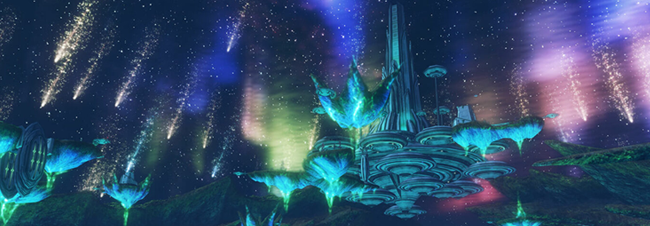
Now at its second re-release, Monolith Soft gives Shulk and the gang another shot with brand-new visuals and a ton of quality-of-life upgrades. Xenoblade Chronicles was one of my favorite Wii games and it’s incredible to see it come back in a big way. The new epilogue helps resolve some bits that the original title never had the chance to revisit; I’m a Melia fan, so I had zero complaints upon learning that she was the focus of the new content. I think there’s still way too many sidequests in Xenoblade Chronicles and the Definitive Edition has reaffirmed that belief, but thankfully some of the improvements in this re-release make them less painful to wade through. I am still crossing my fingers everyday that we’ll see a Xenoblade Chronicles X: Definitive Edition though.
7) Demon’s Souls (2020)
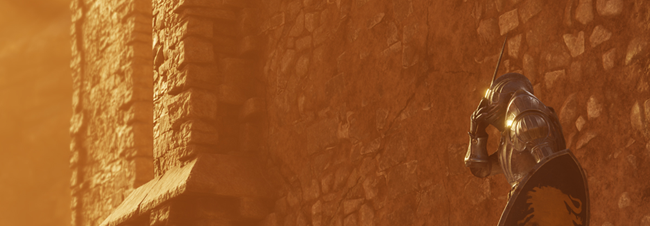
Demon’s Souls on the PS3 has a special place in my heart. King’s Field was one of the very first PS1 games I played and that was a spiritual sequel of sorts to it. They’re absolutely not for everyone, but there’s something about the roughness of Demon’s Souls that I jive with. The tendency system, the obscure ways to rescue some NPCs, the somewhat harsh checkpointing, and all the other rough parts of Demon’s Souls were all, somehow, things that made it memorable for me - in a positive way. Maybe I’m just a broken human being.
Bluepoint Games has done a remarkable job remaking FromSoftware’s PS3 game. It is a strong showcase of what the PS5 is capable of on day 1. The quick loading times still shock me and the newly implemented photo mode was one of my favorite things to mess around with. This Demon’s Souls remake is definitely one of the best launch titles I’ve seen in awhile.
6) Persona 5 Royal
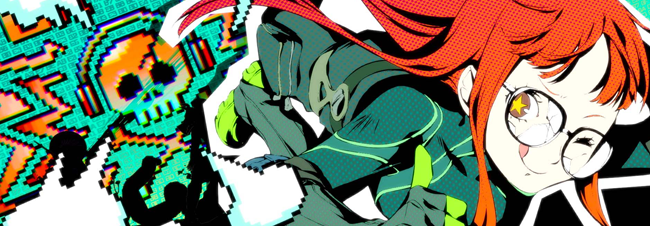
I loved the original release of Persona 5 and Royal improves the experience overall immensely. The game allows for more freedom and experimentation thanks to rebalanced subsystems, like Confidant rewards freeing up time to do what you actually want to do. Oddly enough, the thing I appreciated the most in Royal was the polished up presentation of redrawn character portraits and a thinner font size for dialogue. A lot of the new features are things I hope to see in future entries, like Fusion Alarms; they shook things up in a fun way.
I think it’s funny that the brand-new story content only comes to fruition after the entire original game’s events are dealt with. Its premise is conceptually sound as it tackles a handful of intriguing perspectives, beliefs, and philosophies but it falters quite heavily in its overall presentation because it feels so chained down as a “one more thing” bolted addition to the original game. There are stunning moments in it for sure and I hope the team behind that content is able to create an entirely new game from scratch. I’d love to see what they are capable of from the ground up.
5) Marvel’s Spider-Man: Miles Morales
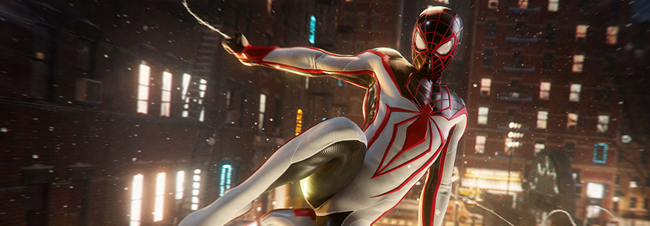
Insomniac surprised me a few years back with Marvel’s Spider-Man. I was expecting an alright Spider-Man game that I’d only cling to for the gameplay, but its narrative had me hooked. They totally nailed the spirit of the prominent characters in the world of Spider-Man and the only thing that really held it back for me were the repetitive open-world activities. This smaller-scaled follow-up to that game helped alleviate those issues while retaining the strong story presentation with a new cast.
I’m proud that Insomniac understood what makes Miles a compelling character and that is represented so well here. I, now, don’t want to play a future installment of Insomniac’s Spider-Man series without Miles. He’s a cool character and his Venom Powers are a significant enhancement to the combat system. I also liked that several of the side activities in Miles Morales have a heavy narrative reason attached to them that made later story developments hit harder. Amazing game.
4) Yakuza: Like A Dragon
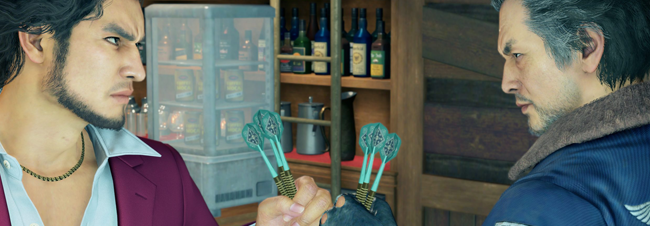
Very few games dare to undergo a complete transformation like the mainline Yakuza series did with Like A Dragon and even fewer have done it as successfully. Yakuza: Like A Dragon was a breath of fresh air for the long-running series and a complete blast to play. Ichiban is easily one of my favorite video game characters this year. His brimming positivity and outlook at life is inspiring, despite all the troubles that came his way. I hope Ryu ga Gotoku Studio continues to run with this kind of Yakuza game for awhile, with Ichiban at the helm. There is a ton of untapped potential to be explored in their approach of turn-based RPG gameplay.
It was fascinating to experience a RPG set in modern times with a full cast of adults running the show. There is a lot to love with the latest entry to Yakuza and the finale is probably one of the most powerful ones to come out of video games this year. I teared up and every time I’ve seen that scene since then… I still tear up. Even upon thinking about it again, I’m starting to get misty-eyed.
3) Final Fantasy VII Remake
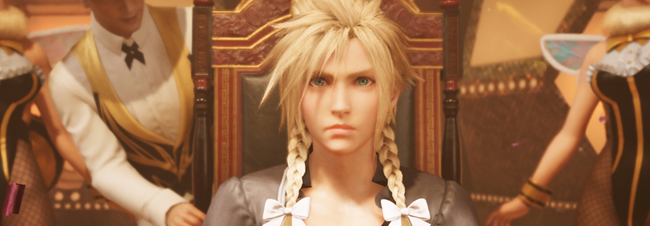
Honestly, I didn’t think Square Enix would pull this off. So much of Final Fantasy VII Remake before its launch left me very skeptical. I wasn’t a believer until the surprise demo and then, the full game was remarkable. Restoring and expanding Midgard with today’s tech continues to be a sight to behold. Although it is graphically rough in some spots (that infamous door!), it is largely one of the most visually spectacular games of 2020. All the characters we’ve come to love over the years have been magnificently restored. Even the side characters, the enemies, and the bosses have a level of craft and care to them that simply feel pristine. Final Fantasy VII Remake’s soundtrack is easily one of my favorites as well. The new battle system strikes a fine balance between new and old Final Fantasy concepts; I think there’s room for improvement in that department.
Obviously I’m super curious in not only how they’ll handle the content of future parts of this Final Fantasy VII Remake, especially with how it ended, but also how they’ll be distributed too. Will it be another full-priced game release or lean more towards bite-sized episodic parts? Can I bring over my character’s levels, weapons, materia, and such? The mystery of how this title will serve future installments is part of its charm to me.
It looks, sounds, and feels like one of the most expensive RPGs that has ever been made and it shows through and through. There were times when I’d slowly roam around and pop up the ATB menu thinking “this looks like a tech demo they’d show off at E3… except that’s the entire game.”
2) Hades
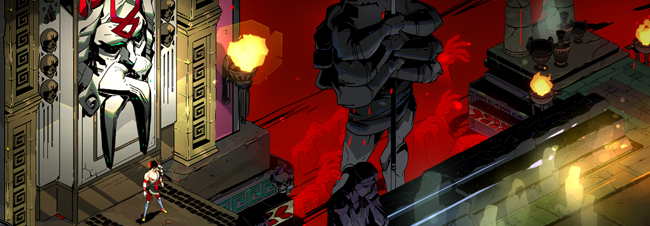
You’ve already probably heard again and again why this game rules. It probably stands as one of the most universally beloved games of this year - and for good reason! I’ve followed Supergiant Games’s journey every step of the way since Bastion and I truly think this is their best game yet. There are a lot of stellar roguelike games, but what really makes Hades a step above most is the added layer of how it presents its story. It is a fine roguelike without that aspect, but things didn’t click for me in its Early Access days; once I completed a single full run in the final release, I began to understand why this game was something special.
There’s a compelling narrative that transforms the way you perceive it in that moment and motivates you to keep playing again and again and again. There’s also enough different weapons, abilities, and challenge modifiers to keep things fresh, along with other systems to keep some form of persistent progress so you’re not always starting from square one. I also appreciate the absolutely massive amount of unique lines for every single character in the game; unique lines from self-aware recurring bosses, the inevitable Hypnos line as you respawn from death, and all the denizens of the underworld have a seemingly endless treasure trove of different things to say to you that all fit contextually. It’s a massive achievement from a relatively smaller studio.
1) 13 Sentinels: Aegis Rim
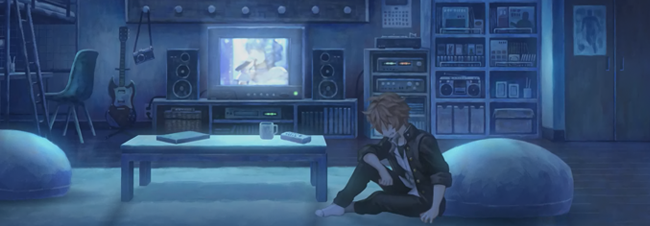
This is by far the game I have loved and cherished the most in awhile. I like a lot of what Vanillaware has put out in the past, but this is their magnum opus. It is an astounding amalgamation of unconventional storytelling and captivating narratives through bite-sized segments. Freeform story structures are difficult to convey in games, yet 13 Sentinels masterfully gives just enough control and freedom to players for them to manipulate their own progression comfortably. 13 Sentinels knows its own limits though and freely reveals its sleight of hand through story progression locks; you’ll often be required to go explore other stories from the 13 main characters or reach a certain battle stage before the game can reveal further revelations. It’s this restraint that makes me appreciate that Vanillaware was concerned not only with how it would unfurl its complicated tale, but also the cadence of potential emotional impacts as layers of the story unseal themselves one by one.
Overtime, I grew attached to every single character in 13 Sentinels. Every single one of them serves an important purpose to the overall story. I never felt like there was a throwaway plot thread; it all connected and resonated meaningfully. Talking deeply about 13 Sentinels is always a sketchy proposition because the entire nature of it is an experience I do not want to spoil for those who have yet to play it.
I’ve said it before and I’ll say it again. I wish I could play 13 Sentinels: Aegis Rim again and again for the first time. It was one of the most powerful gaming experiences I had in 2020 and no other game ever came close to it.